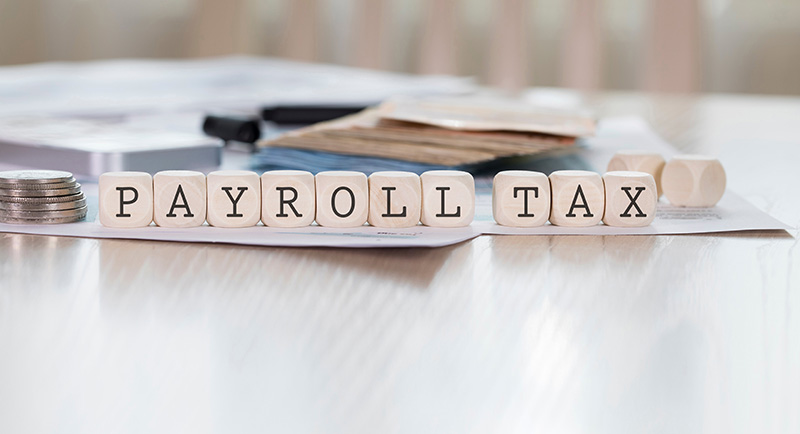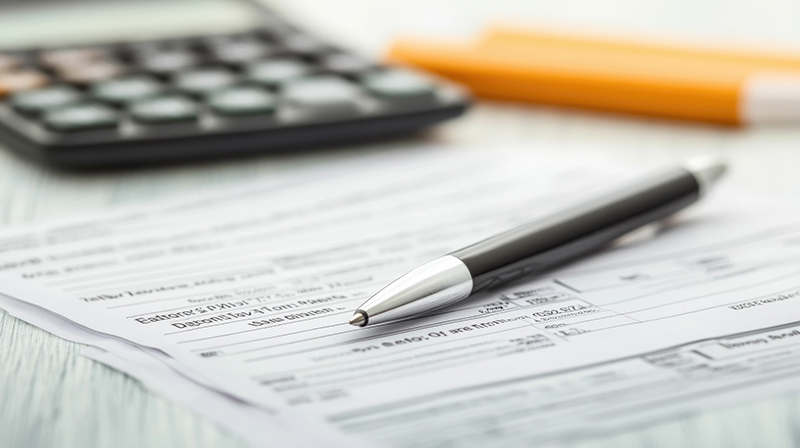Federal Payroll Tax Deferral - What You Should Know
June, 16 2022 by Steve Banner, EA, MBA
Now that the worst of the COVID-19 pandemic is behind us, most of us would probably agree that we would like to resume our normal lives and forget that COVID ever happened. The effects of the pandemic that began in early 2020 were not only physical in nature but also financial. Many businesses were forced to close their offices temporarily while their employees worked from home. Other businesses either closed entirely or laid off workers and restricted the hours of those who remained. In the face of this challenging set of circumstances, the US and state governments began to scramble to find ways to ease the monetary impact throughout the nation. As part of this effort, two payroll tax deferral programs were launched in 2020 in an attempt to relieve the cash flow squeeze that was affecting both businesses and their employees.
Business Program
In March 2020, as part of its attempt to address the financial issues for businesses, the US Congress passed the CARES Act to create a program to allow employers and self-employed individuals to choose to temporarily postpone the payment of certain employment taxes. The tax concerned was the 6.2% Social Security tax that businesses pay on behalf of their employees and that self-employed individuals pay on behalf of themselves as their own employer. The Federal Payroll Tax Deferral program was designed to allow for the regular payment of the employer’s share of the Social Security taxes to be put off to a later date.
This postponement of the normal payment schedule was intended to help businesses and self-employed individuals ease the short-term pressure on their cash flow that was affecting them as they adjusted to new ways of working. However, there were some enterprises who had to close down entirely after they found themselves unable to adapt to the new reality of doing business during the pandemic.
This voluntary program was put into effect for the employer’s share of payments related to payroll during the period from March 27, 2020, until December 31, 2020. The terms of the program allowed for the Social Security tax payments that would normally be due periodically during 2020 to be suspended until 2021 and 2022. Although the program relieved the obligation to pay the tax during 2020, the tax still had to be paid at some point. The first half of the suspended payments would have to be paid by December 13, 2021, and the second half was due by December 31, 2022.
The IRS uses Notice CP256V during 2021 (and 2022) to remind self-employed taxpayers of their obligation to repay the first (or second) half of their deferred self-employment taxes by December 31 of the year. These notices are sent out during the latter part of the year. The payments can be made by using the payment voucher that is included with the CP256V Notice or, alternatively the payment can be made electronically through the IRS website. Payments that are made through the website must be made separately from any other tax payment and must be designated as deferred 2020 Social Security taxes.
Employee Program
On August 8, 2020, the Presidential Memorandum known as “Deferring Payroll Tax Obligations in Light of the Ongoing COVID-19 Disaster” was issued to temporarily defer the payment of the employee’s share of Social Security tax. The aim of this voluntary program was to allow employees who normally made less than $4,000 biweekly to receive a temporary increase in their take-home salary, thanks to the suspension of their 6.2% payroll deduction for Social Security. This program was to be in effect from September 1, 2020 until December 31, 2020. Once again, this program did not eliminate the taxpayer’s responsibility to pay the Social Security tax but simply postponed the payment schedule. In this case, the employers of taxpayers who took part in the program would restore the missing payments by increasing the withholding from the taxpayer’s salary throughout the entire year 2021. Interest and penalties would begin to accrue for any unpaid Social Security taxes that remained after January 3, 2022.
Although participation in the program was intended to be voluntary, it was made mandatory for most federal employees and military members who met the $4,000 biweekly test. Employees or service members who ended their employment during 2021, before the deferred Social Security tax was collected in full through payroll deductions, are still responsible for the remainder of their Social Security tax repayment.
Anyone who finds themselves in a position of owing unpaid payroll or income taxes is always free to contact TaxAudit for a no-cost and obligation-free consultation. Any of our tax experts would be happy to discuss your situation with you and inform you of the courses of action you could take to resolve your tax debt.





